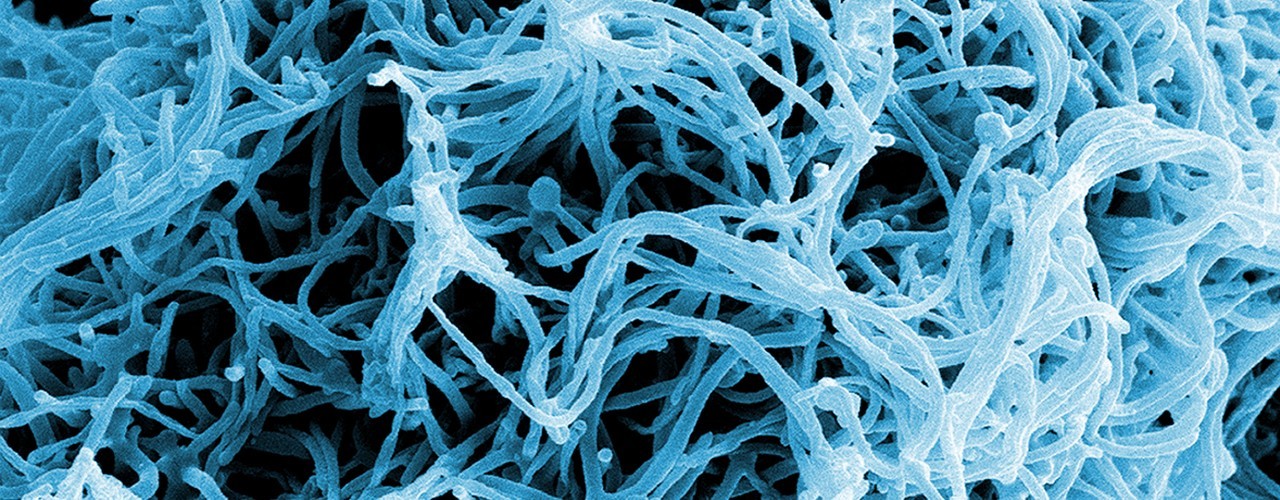Report on EVA activities related to the EBOLA disease outbreak
One of the main contributions of specialised EVA project partners is associated with the deployment of mobile laboratory units in African countries where the virus emerged. EVA Partners or Associated partners (in bold) are sending teams of scientists and mobile laboratories to support local authorities in the diagnosis of suspect cases. EVA partners are also contributing to this capacity building in different fields and different countries where the disease emerged.
EVA supports local authorities in the diagnosis of suspect cases
- A - The project "Establishment of Mobile Laboratories for Pathogens up to Risk Group 4 in Combination with CBRN Capacity Building in Sub-Saharan Africa" is funded by the European Commission and builds on the capacity to bring state-of-the-art technology, diagnostics and highly trained scientists from Europe and Sub-Saharan African countries to the field in the context of the Ebola disease outbreak:
Bernhard-Nocht-Institute (BNI- Prof S. Gunther) is the coordinator of this consortium. More details on the facilities are available in the following site http://www.emlab.eu/ The EMlab deployment is organized in Guinea, Nigeria and more recently in Liberia: the European Mobile Laboratory Consortium sent teams to Guéckédou, Guinea,, that have been performing diagnostics for Ebola Virus Disease since the start of the outbreak. The teams present on site are regularly replaced by new teams. This continuous turn-over of scientists guarantees efficient operation of the facilities which continuously provide fast molecular diagnostics for patients being admitted to treatment centres in the region.
Colleagues from the Univerza v Ljubljani from Slovenia, the Robert-Koch-Institute from Germany and the Heinrich-Pette-Institute from Germany, and L. Spallanzani national Institute for Infectious Diseases (INMI) from Italy have sent scientists to the different locations. A very significant contribution of Public-Health-England from UK has generated an important number of data from local biobank which will supply essential information on the virus evolution/adaptation, immune correlates of protection and biomarkers of disease outcome. The project is continuing its support in the affected regions, the country of Guinea, Médecins Sans Frontières, and the WHO in a major effort to help mitigate the current crisis caused by the Ebola Virus epidemic.A team from BNI has joined a Nigerian unit to ensure that the European Mobile Laboratory Project succeeds in the deployment of the lab. The unit is investigating Ebola suspected patient samples in Enugu and Port Harcourt in Nigeria.
Following the request by the WHO, the EMLab Project urgently deployed a third mobile laboratory unit to Liberia. Liberia is one of the countries in West Africa that has most severely been hit by the Ebola Virus outbreak. Health care workers are faced with the enormous challenge of caring for a high number of patients presenting with symptoms of Ebola Virus Disease. Patients need to be diagnosed rapidly. Other EVA partners are associated with this project:- Laboratoire P4 Inserm Jean Merieux, Lyon, France
- Universitaetsklinikum Bonn, Bonn, Germany
-
B - A similar initiative is coordinated by the Centre for emerging and Zoonotic Disease of the National Institute for Communicable Diseases (NICD), Johannesburg, South Africa, an associated partner of the EVA consortium. The deployment of mobile laboratories (MLU) is organized in Freetown-Lakka in Sierra Leone under the WHO/GOARN umbrella. A team of highly trained scientists from NICD leaded by Prof. J Paweska is in the country since mid of August to conduct on-site field qPCR diagnostic of the infection in suspected patients.
Reports concerning the activities of the MLU are available on the following site: http://www.nicd.ac.za.
Contribution to the capacity building where the disease emerged
University of Texas Medical Branch – Centre biodefense & Emerging Infectious disease: Senior scientist has been sent on-site field in Sierra Leone to manage a team with the objectives to identify and to isolate infected Ebola patients and associated contacts. Several other investigators at UTMB have projects testing vaccine candidates and anti-Ebola agents in vitro and in non-human primates in our BSL-4 facility.
China-CDC: Staffs of the Department of Viral Encephalitis and Arbovirus, National Institute for Viral Disease Control and Prevention, China CDC are sent to Sierra Leone since September 2014 to perform diagnostic tests (qPCR) on samples collected from local Ebola patients. Others teams are prepared to replace this first group during November.
EVA database
These activities are generating a mass of information and many clinical isolates from which EBOLA virus strains have been extracted, purified and authenticated. The access to most of those products is given to the Scientific Community at large, through the EVA website.
The list of Ebola related products is available at http://www.european-virus-archive.com/Portal/
For instance, Human serum samples from blood donors in the Republic of the Congo have been screened at Unité des Virus Emergents in Marseille for Ebola virus seropositivity and the results have been analysed in the context of a questionnaire relating to human exposure to birds and bats (manuscript submitted for publication).
Distribution of PCR reagents for the diagnostic of the disease
From its website, EVA is distributing PCR reagents to be used for the identification of the virus in different media, or for the diagnostic of the disease. So far more than 50 products have been shipped by BNI to more than 12 different countries in Europe, South East Asia and Middle East.
P.S.
If you are interested in these PCR reagents or other products related to this virus, you can place an enquiry by using our cart system available at:
http://www.european-virus-archive.com/Portal/
